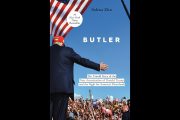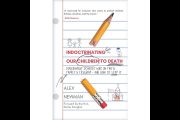The third installment in John Wesley Rawles’ Novels of the Coming Collapse series draws together themes and characters familiar to readers of the series and brings them to a conclusion which gives hope for the future of Western civilization.
Founders — like Patriots and Survivors, the two previous novels in the series — is set in the very near future. The background for the entire trilogy is a disturbingly realistic extrapolation of current economic and political conditions and policies. The dollar has finally collapsed and the fragile network of easy credit, deficit spending, and “just in time” business practices, combined with political hubris, has crashed the entire system of government and has taken the global economy along with it.
Rawles continues to explore the future by tracing the intersecting lines of the lives of various Americans suffering from the impact of the “coming collapse.” His characters are not simply a roster of steely-eyed survivalists; in fact, some of his heroes are almost completely unprepared for the collapse. Another crucial aspect of Rawles’ writing is that he resists the urge to engage in political treatises passed off as “speeches” — he is telling a story, and he does so quite skillfully. Although he has obviously thought quite deeply about the plight of the American Republic, and does not hesitate to speak quite decisively about its flaws and recent failings, he does not allow his analysis of such matters to disrupt the flow of the story.
In addition to the book’s ongoing critique of the nation’s reliance on deficit spending and fiat money, the reliance of the illegitimate “Provisional Government” (or ProvGov) on unconstitutional tactics is another key element of the plot of Founders. Rawles highlights the mercenary character of the ProvGov’s own forces. This can be read as a stinging indictment on the growing reliance of the federal government on contracted forces — the looting and rapine engaged in by ProvGov mercenaries bespeak the criminal and illegitimate character of the government itself. Abridgment of the right to keep and bear arms is bound up with a nascent totalitarianism which relies on contracted thugs to maintain its power.
Not only does the ProvGov attempt to overturn the Bill of Rights, the regime also relies on United Nations “peacekeeping” forces to help overcome all challenges to its legitimacy. In fact, in the third installment of Rawles’ series, the conflict between the American people and the “peacekeepers” comes to occupy center stage in the struggle to determine the nation’s future. UN forces and ProvGov mercenaries work together to suppress those people who would pressure the government to return to the constitution.
One of the shortcomings of Founders is that the concluding fourth of the book left this reader with the impression that the author had rushed to complete it. Certain major plot lines are hastily concluded: the progress of the new war for American independence easily could have merited a volume of its own. Certainly those Americans who are suffering from the seeming bleakness of their nation’s prospects for the future need the optimism which permeates the conclusion of this book.
It is rare for any book which could be described as “apocalyptic” to also be labeled as “optimistic,” but it is true: Rawles clearly appeals to that which is most noble in American history and culture. He unflinchingly presents his readers with a portrait of a time of great darkness in our immediate future, but he does so in the hope that the fundamental principles of Western civilization will be restored. Founders is a fitting conclusion to the Coming Collapse trilogy, appealing to that which is best in our American heritage, and holding out the prospect of a restoration of the foundations of our civilization.
James Wesley Rawles, Founders—A Novel of the Coming Collapse, (New York: Atria, 2012) $25.99




